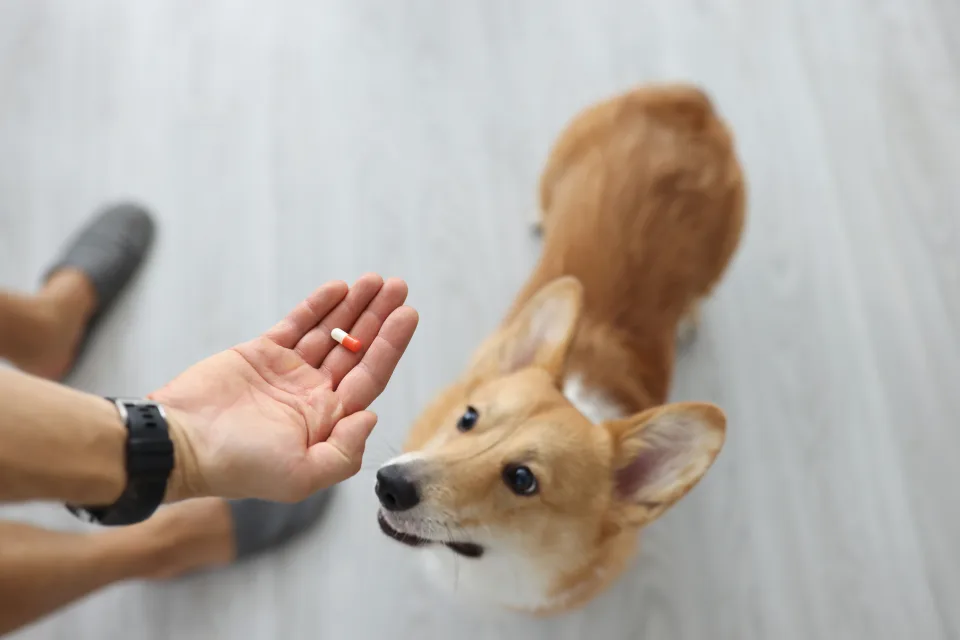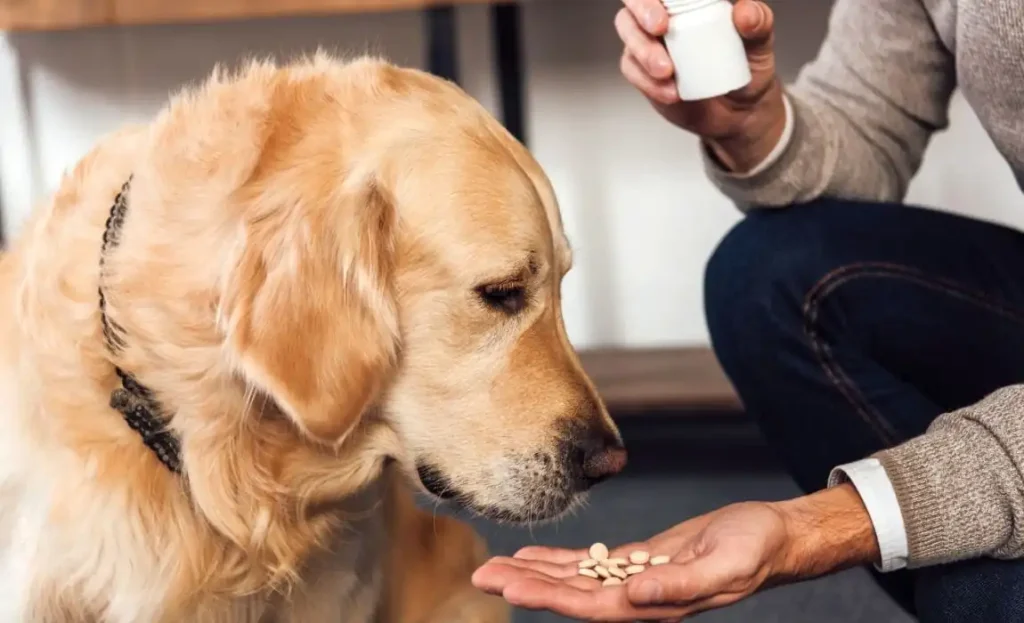When people have an uneven diet, the good bacteria in the gastrointestinal tract will be reduced, which will lead to symptoms of flatulence and diarrhea, so people will take probiotics in their daily life to maintain gastrointestinal health. However, dogs also need probiotics to prevent harmful bacteria in their bodies.
There are many health supplements for dogs that are based on probiotics and enzymes, so what is the difference between the two? What are the benefits of probiotics for dogs? How to take probiotics for dogs? Where to buy probiotics for dogs? Let us tell you about it from our pet store in Taipei!

Can dogs take probiotics? When to take probiotics for dogs?
With age, environmental pressure, unbalanced diet leads to the reduction of good bacteria in the gastrointestinal tract, the reduction of good bacteria will easily cause diarrhea, flatulence, loss of appetite, coat dullness and other problems. Poor functioning of the gastrointestinal tract can lead to many other physical ailments. Timely supplementation of probiotics can restore the balance of the body’s functioning.
Probiotics, as the name suggests, are microorganisms that are beneficial to the host and not only help to maintain smooth digestion, but also eliminate harmful germs such as antimicrobial peptides, bacteriocins and other substances, which help to regulate our own physical condition. Therefore, it is okay for dogs to take probiotics because it can boost their resistance.
Is there any difference between probiotics and enzymes for dogs? What is the difference?
Enzymes for dogs
Enzymes help to break down food and help the body to absorb it. Enzymes, also known as “enzymes”, are mainly used to help digestion, break down nutrients, consume calories, excrete waste, and help large molecules such as starches, proteins, and fats break down into smaller molecules for intestinal absorption, which require the help of enzymes for the body to function properly.
To prevent undigested proteins and fats from becoming nutrients for bad bacteria, many fruits are rich in enzymes, such as pineapple enzymes in pineapples and papaya enzymes in papayas, which can help our intestines to digest. Enzymes are usually recommended to be taken after meals.
Probiotics for Dogs
Probiotics are good bacteria that help maintain a good environment in the gastrointestinal tract. Probiotics are beneficial bacteria that live mainly in the large intestine. In addition to helping the body to digest and absorb nutrients, in recent years, many scientists have studied the importance of intestinal bacteria on intestinal diseases, immunity, weight, and even eczema.
What are the benefits of probiotics for dogs?
Probiotics for dogs can not only improve resistance and maintain the health of the gastrointestinal and digestive tract, but also inhibit the growth of bad bacteria, provide nutrients for good bacteria, smooth bowel movements, and relieve gastrointestinal discomfort, dysentery, foul-smelling feces, vomiting, and skin allergy symptoms. In addition, when the dog is taking antibiotics caused by diarrhea, appropriate supplementation of probiotics, can also be achieved to relieve the symptoms of diarrhea caused by antibiotics.

How to take probiotics for dogs?
Probiotics are recommended if your dog has any of the following conditions!
Dogs with foul-smelling bowel movements may have digestive problems.
Stools are not regular and may be soft or hard, which may indicate an imbalance in the gastrointestinal tract.
If your dog is healthy, but has been losing weight, it may be due to gastrointestinal malabsorption.
When dogs take antibiotics, the probiotics in the intestines will also be destroyed.
Can dogs take human probiotics?
Dogs can eat human probiotics, it is not harmful but may not be beneficial, after all, humans and dogs are different species, the digestive system is not the same.
People are omnivores and have a much longer intestinal tract than dogs, so they have more time to digest complex foods such as grains, vegetables and fruits. A dog’s stomach can secrete a lot of stomach acid to break down proteins quickly, so a dog’s staple food is a lot of meat proteins.
The staple diets of humans and dogs are different, and so are their digestive systems. Therefore, the strains of probiotics specifically formulated for humans and dogs will be different.
What is the best way to choose a probiotic for dogs?
The most important and simple thing is to choose a probiotic specifically for dogs! In addition, the choice of powder or lozenge depends on the level of acceptance of the dog. Many small dog owners are worried that their dog won’t be able to take the tablets, but this can be solved by purchasing a pill grinder from the pharmacy.
As for which probiotic to choose, I can only say that the strains of probiotics vary from brand to brand, so the only way to choose is to look for a recommendation from a reputable and trusted pet store and see which one has a high buy-back rate!
In addition, you may find that the price of dog probiotics ranges from $500 to $600 to more than $1,000. If you take a closer look at the ingredients, you will find that some probiotics have “prebiotics” added to them.
“Probiotics are designed to provide the gastrointestinal tract with a better environment to assist in the growth of probiotics, and this level of probiotic health food is more expensive and easier to meet the needs of our customers.
